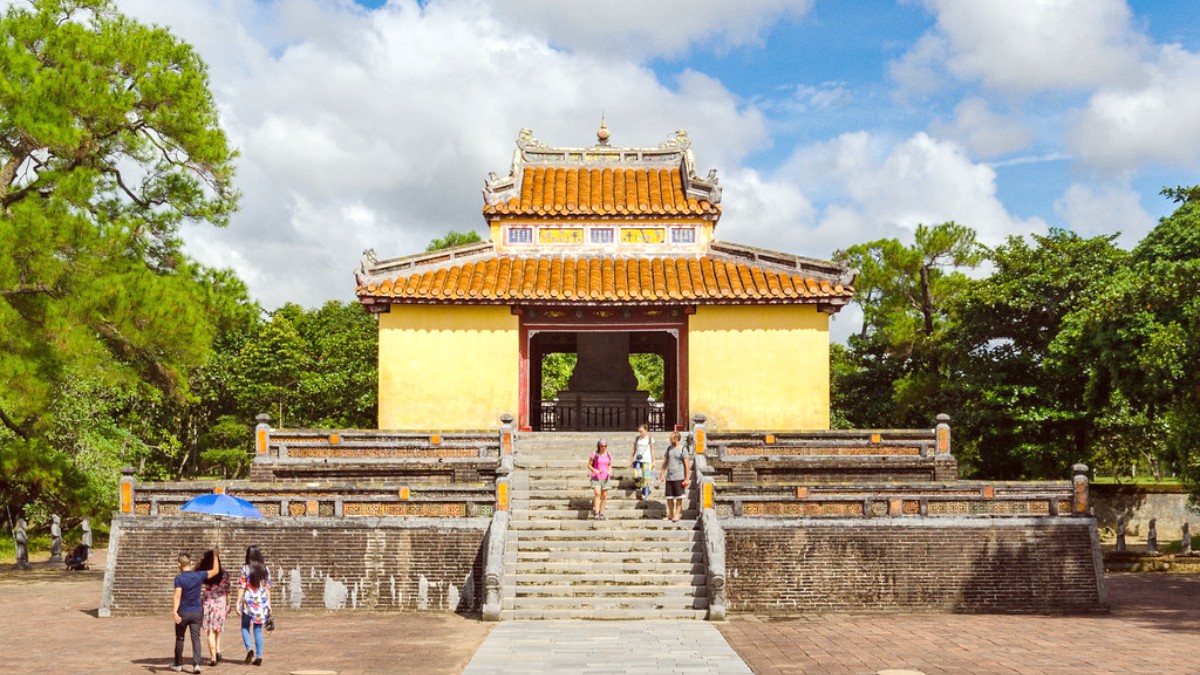
Central Vietnam, Vietnam
No specific vaccinations are necessary for entry into Vietnam unless you arrive from a country with a Yellow Fever transmission risk. Consult your doctor or a travel clinic well in advance. Common recommendations include routine vaccinations (MMR, DTP, Polio), Hepatitis A & B, Typhoid, and Japanese Encephalitis (for extended time in rural areas or during monsoon season). Rabies vaccination applies for activities with potential animal contact.
Common health concerns include Traveler's Diarrhea; drink only bottled or purified water. Avoid ice cubes from unverified sources. Eat hot, freshly cooked food from reputable vendors. Carry a small first aid kit with Anti-diarrheal medication. Dengue Fever, a mosquito-borne illness, occurs year-round, especially during the rainy season. Use Insect repellent with DEET or picaridin. Wear long sleeves and pants, particularly at dawn and dusk. Stay hydrated in hot months; wear a hat and seek shade. Air pollution from motorbike exhaust can cause issues; consider a face mask if sensitive.
Hue is generally a safe city for tourists. Violent crime against visitors is rare. Petty crime like pickpocketing and bag snatching can occur in crowded areas (Dong Ba Market, tourist zones at night). Stay aware of your surroundings and keep valuables secure, perhaps in an RFID blocking money belt or an anti-theft bag from Pacsafe.
Overcharging by taxi or cyclo drivers is the most common scam. Insist on the meter or negotiate the fare firmly. Crossing streets can be challenging due to motorbike traffic; walk predictably. Motorbike accidents are common; exercise extreme caution if you rent a scooter. Flooding is a significant risk during the peak rainy season (September-November), particularly in low-lying areas. Typhoons can also strike the coast during this time. Adventure Medical Kits supplies first aid for travelers.
Vietnam Emergency Services
113
114
Hospital & Ambulance
115
No dedicated number, contact local police via 113.
Embassy & Consulate
Keep contact details ready (usually in Hanoi or Ho Chi Minh City).
Highly recommended for emergencies. AirHelp provides flight compensation services.
Taxi drivers or cyclo drivers may overcharge without a pre-agreed price. Always insist on the meter or negotiate the fare firmly before starting your ride. Pickpocketing and bag snatching happen in crowded areas like Dong Ba Market or tourist zones at night. Maintain awareness of your surroundings and keep valuables secure.
Crossing streets can be challenging due to heavy motorbike traffic. Walk predictably and permit traffic to flow around you. Motorbike accidents are frequent; exercise extreme caution if you rent a scooter. Consider anti-theft solutions like those from Pacsafe for your belongings.
When negotiating, be polite but firm. A smile helps. Always confirm the final price before agreeing.
Use money belts or hidden pouches. Do not flash large amounts of cash. A RFID blocking money belt adds security.
Make eye contact with drivers. Do not dart into traffic. Wait for gaps or walk steadily.
Drink plenty of bottled water, especially during hot months. Carry rehydration salts for long days.
Check local weather forecasts, especially during the wet season, for typhoon and flood warnings.
Layering works well for fluctuating temperatures.
Dry Season (March-August): Pack lightweight, breathable fabrics like cotton, linen, or quick-dry synthetics for managing heat and humidity. Include shorts, t-shirts, and light dresses. For the hottest months (May-August), prioritize loose-fitting clothing. A Wide-brimmed hat and Sunglasses aid sun protection.
Vietnam generally permits relaxed dress, but modesty is appreciated when visiting religious sites like pagodas, temples, or tombs. Your shoulders and knees should be covered. Women can pack a Lightweight scarf or sarong for quick coverage. Remove shoes when entering homes, temples, or pagodas; look for shoe racks as a guide.